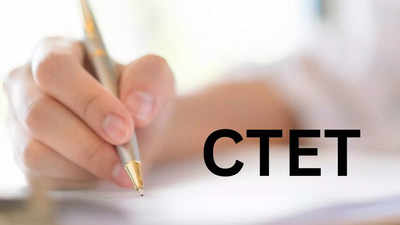
The Central Teacher Eligibility Test (CTET) 2024 admit card is anticipated to be available soon on the official CBSE website, ctet.nic.in. Candidates who completed their registration can access and download their admit cards once the link is live.
Although the exact release date has not been announced, applicants can monitor the website for the latest updates. The CBSE CTET 2024 exam is set to take place on December 15, 2024 (Sunday), replacing the previously scheduled date of December 1, 2024.
The Central Teacher Eligibility Test (CTET) is a national-level exam conducted in India to determine candidates’ eligibility for teaching positions in central government schools. Scoring above 120 in this challenging exam can give candidates a significant edge.
CBSE CTET 2024: Exam pattern
The CTET comprises two papers: Paper I, for candidates aiming to teach classes I-V (primary level), and Paper II, for candidates aiming to teach classes VI-VIII (upper primary level). Each paper is structured into these sections-
- Child Development and Pedagogy (CDP) – foundational to understanding child psychology and teaching methods.
- Language I – generally Hindi or English, based on the candidate’s choice, focusing on language proficiency and pedagogy.
- Language II – a different language from Language I, testing similar skills.
- Mathematics – covering primary or advanced mathematical concepts and pedagogical methods.
- Environmental Studies (Paper I) and Science/Social Studies (Paper II) – assessing knowledge of environmental science, general science, or social studies concepts, along with pedagogical insight.
Here are 7 strategies to score above 120 in CBSE CTET Exam 2024
Child Development and Pedagogy (CDP)
Deepen Knowledge of Learning Theories: Master key theories like Piaget’s cognitive development stages, Vygotsky’s social constructivism, and Kohlberg’s moral development. Apply these theories practically by visualising their impact on classroom situations.
Inclusive Education Principles: Inclusive education is a recurring theme in CTET, and you should be well-versed in adapting instruction for diverse learners, such as differently-abled students.
Practical Pedagogical Techniques: Emphasise child-centred pedagogy, especially methodologies like cooperative learning and differentiated instruction. This focus will help you answer questions related to real-life classroom management effectively.
Language I and Language II
Grammar and Comprehension: Strengthen grammar fundamentals and reading comprehension skills. Practise diverse reading materials to enhance your speed and accuracy in this section.
Language Pedagogy: Understand key principles of language learning, such as the difference between language acquisition (natural learning) and language learning (structured). Focus on child-centered language teaching approaches, emphasising phonics, critical thinking, and comprehension skills.
Practice with Pedagogical Questions: Familiarise yourself with questions around phonetics, syntax, and vocabulary instruction. This preparation is crucial as many language questions are practical applications of pedagogy.
Strengthen Core Mathematics Skills
Key Topics: Focus on essential topics like number systems, geometry, data handling, and basic operations. For Paper II, concentrate on advanced problem-solving strategies and algebra.
Pedagogical Techniques: Use Teaching-Learning Materials (TLMs) for better concept clarity. Manipulatives like blocks or visual aids help in understanding abstract concepts. Visualise how to teach mathematical concepts interactively, as this will help in answering pedagogy-based questions.
Practice Visualisation Techniques: Mental math and visualisation techniques are powerful tools. They can help you solve questions quickly while minimising the time spent on complex calculations.
Environmental Studies (Paper I)
Environmental Science: Study topics like biodiversity, pollution, and climate change deeply. Prepare yourself to explain these in a classroom setting, as questions often explore both knowledge and pedagogical approach.
Social Studies Integration: For Paper II candidates, study key historical events, geographical concepts, and basic civic education. Approach these topics from a teaching perspective, considering how to convey them engagingly to students.
Interdisciplinary Connections: Practise making connections across disciplines, such as linking environmental concepts to historical events. CTET questions often test your ability to teach integrated studies, especially for real-life applications.
Learn Time Management and Smart Question Choices
Efficient Time Allocation: Allocate a set time per section and stick to it. For instance, complete CDP and both Language sections within the first half to allow more time for Mathematics and EVS/Social Studies, which require calculation and analysis.
Question Selection: Start with questions you are confident about to build momentum. Leave the more complex or uncertain ones for the second pass, helping you manage time without sacrificing accuracy.
Eliminate Guesswork: There’s no negative marking in CTET, so it’s beneficial to attempt all questions. However, guessing should be educated; eliminate unlikely options before choosing.
Intensive Practice with Mock Tests and Previous Papers
Identify Patterns: CTET often includes repeated concepts and question types. Reviewing past papers helps you identify these trends, making it easier to predict and prepare for likely questions.
Timed Practice: Regularly simulate exam conditions by practising timed full-length mock tests. This helps you get comfortable with the pressure and pace of the actual exam.
Self-Assessment and Review: After each mock test, review your answers, especially mistakes. Note common errors and revise those areas specifically to avoid repeat mistakes on exam day.
Stay Organised and Maintain a Positive Mindset
Create a Study Schedule: Organise your study time effectively by setting a timetable that dedicates specific days or time slots to different subjects. This consistency helps avoid last-minute stress.
Positive Reinforcement: Practising mindfulness techniques or short meditation sessions can help you maintain focus and reduce stress. Staying positive and motivated is crucial, especially as the exam date approaches.
Self-Assessment: Reflect on your progress each week. Identify strengths to build confidence and weaknesses to target with more focused practice.

